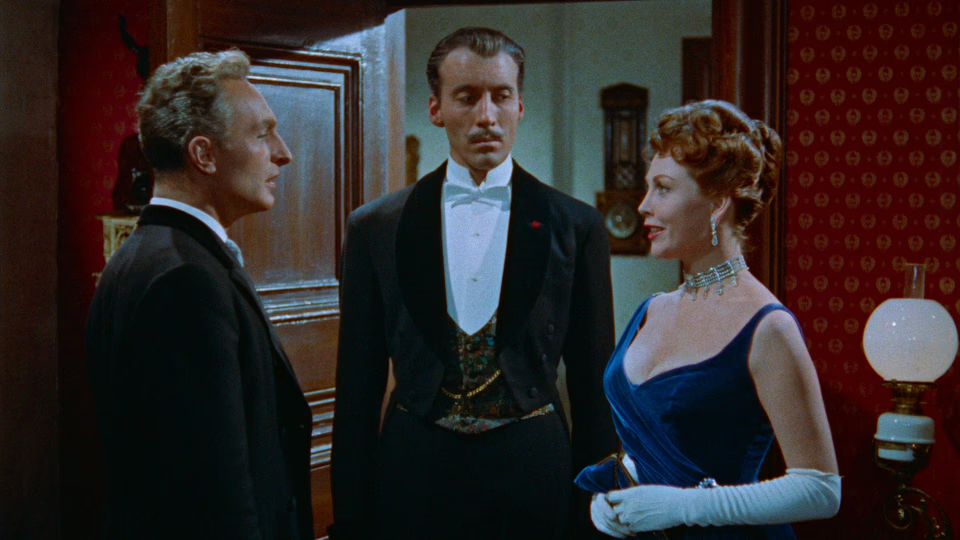The Man Who Could Cheat Death

After conquering gothic horror with Curse of Frankenstein and Horror of Dracula, Hammer tries to merge both formulas. The result? Frankenstein without the monster. Dracula without the bite.
Anton Diffring plays a 104-year-old doctor with a 36-year-old body. He needs a new parathyroid gland every decade to stay young. His surgeon has had a stroke. His green serum—a stopgap measure—keeps turning him into a homicidal maniac. Desperate times, desperate measures: he kidnaps Hazel Court to blackmail Christopher Lee into performing the operation.
The premise works on paper. But Jimmy Sangster’s script can’t escape the play it’s adapting. Too much talk. Too little horror. This is Frankenstein neutered—no creation, just preservation. Dracula defanged—no immortal predator, just a desperate old man with gland problems.
The budget doesn’t help. Diffring’s transformation amounts to green contact lenses and pancake makeup. Director Terence Fisher’s previous monsters looked terrifying. This looks like bad cosmetics. Most scenes unfold in Diffring’s cramped living room. The stage origins and cost-cutting show.
The cast tries. Diffring convinces as an ancient mind in young flesh. He’s got enough screen presence to hold his own against Lee and make Court’s affection almost believable. (Hammer cast him after Peter Cushing mysteriously declined.1 Smart move by Cushing?) Court looks lovely but functions as a plot device. Lee does what Lee does—elevating mediocre dialogue through sheer force of will, reminding Hammer he deserves star billing.
Fisher manufactures what atmosphere he can. That green-lit safe is gorgeous. The fog-machine overkill in outdoor scenes helps. But he can’t get blood from a stone.
Sangster proved with Dracula and Frankenstein that he could strip source material to the bones and rebuild something bloody and brilliant. Here, he respects the play too much. He should have added sex and gore, not reverence.
The Man Who Could Cheat Death isn’t a bad movie, just a disappointing one. When you’ve already made masterpieces, mere competence feels like failure.
Notes
-
David Miller, Peter Cushing: A Life in Film (London: Titan Books, 2013), 79. ↩︎